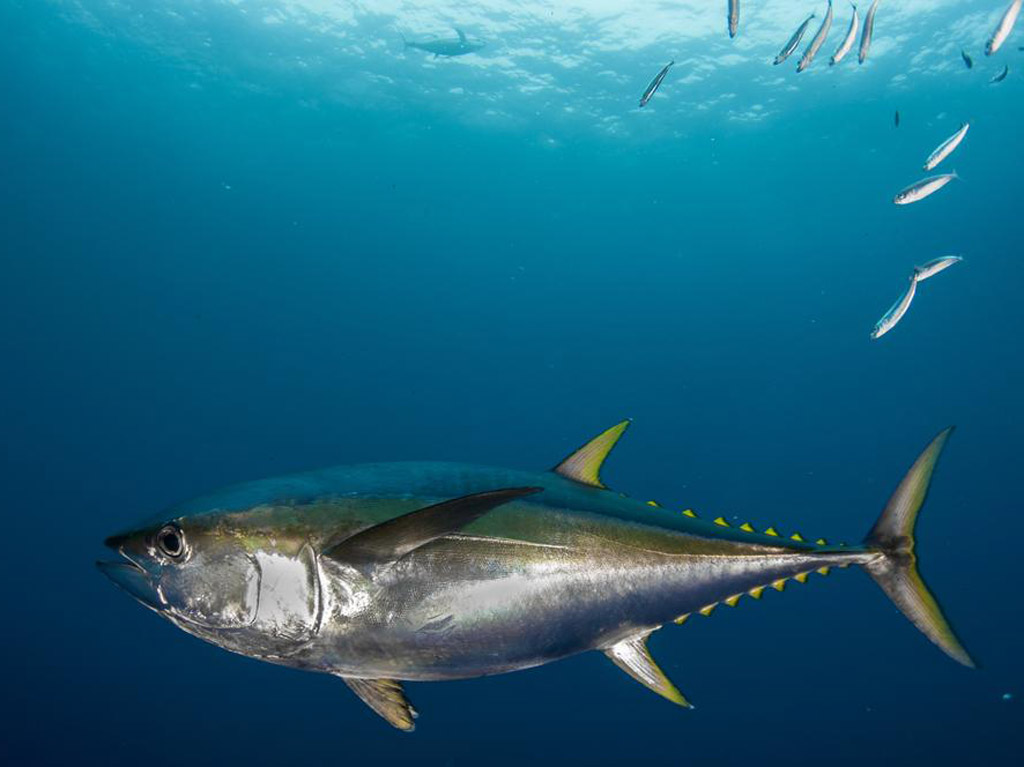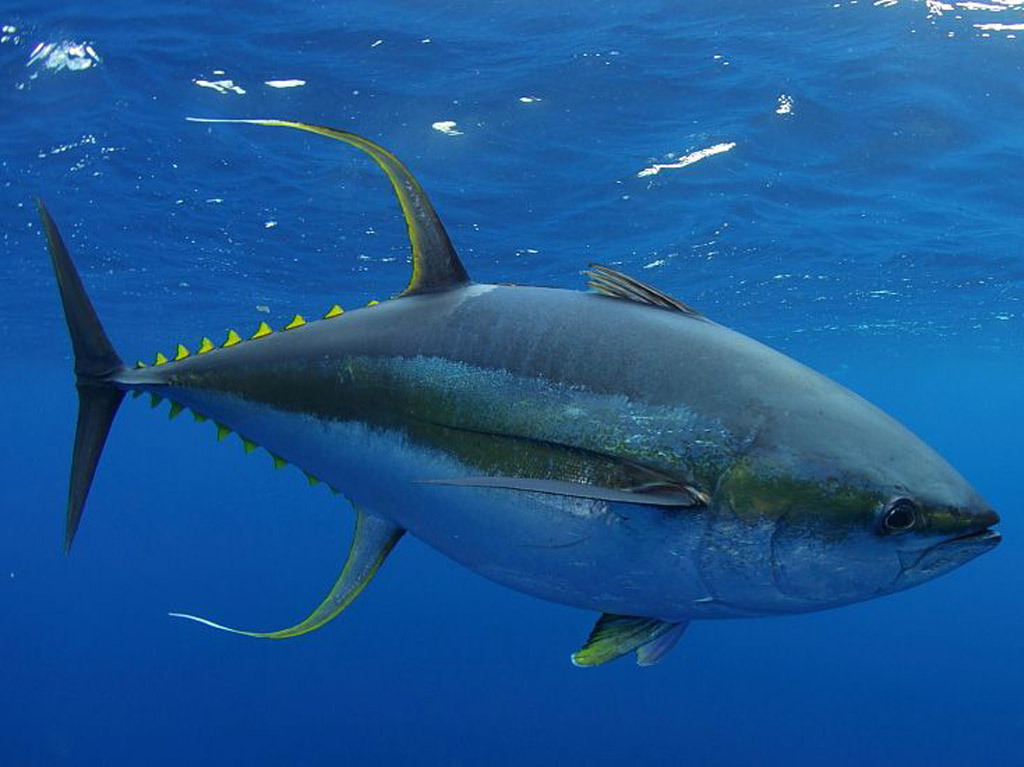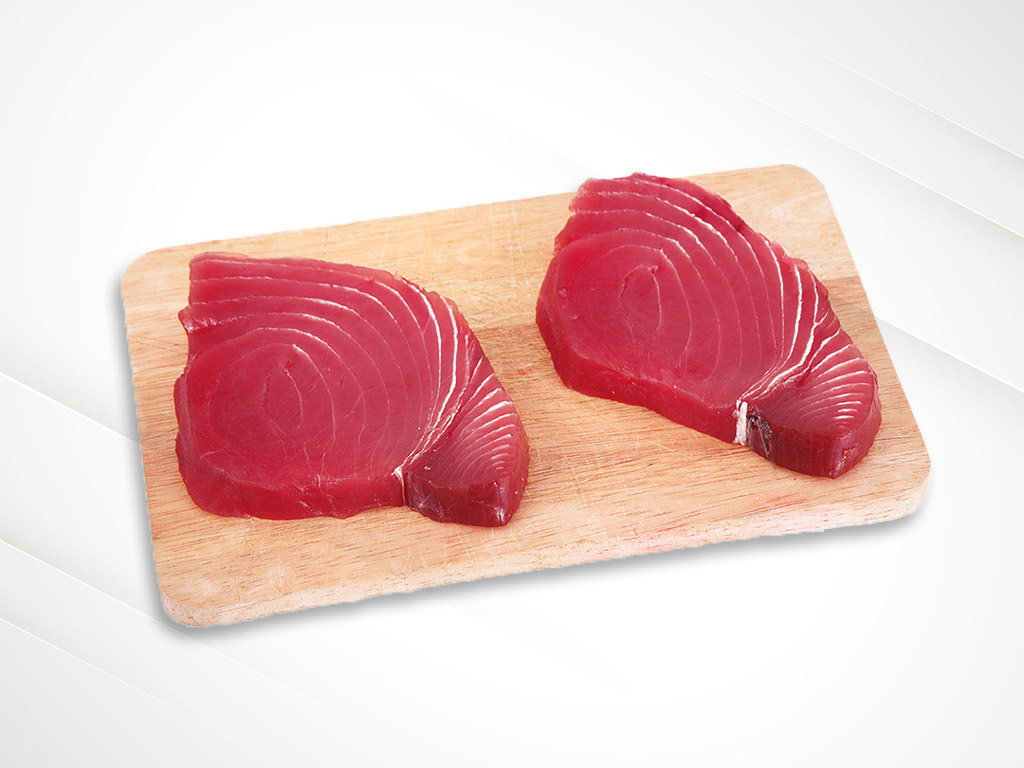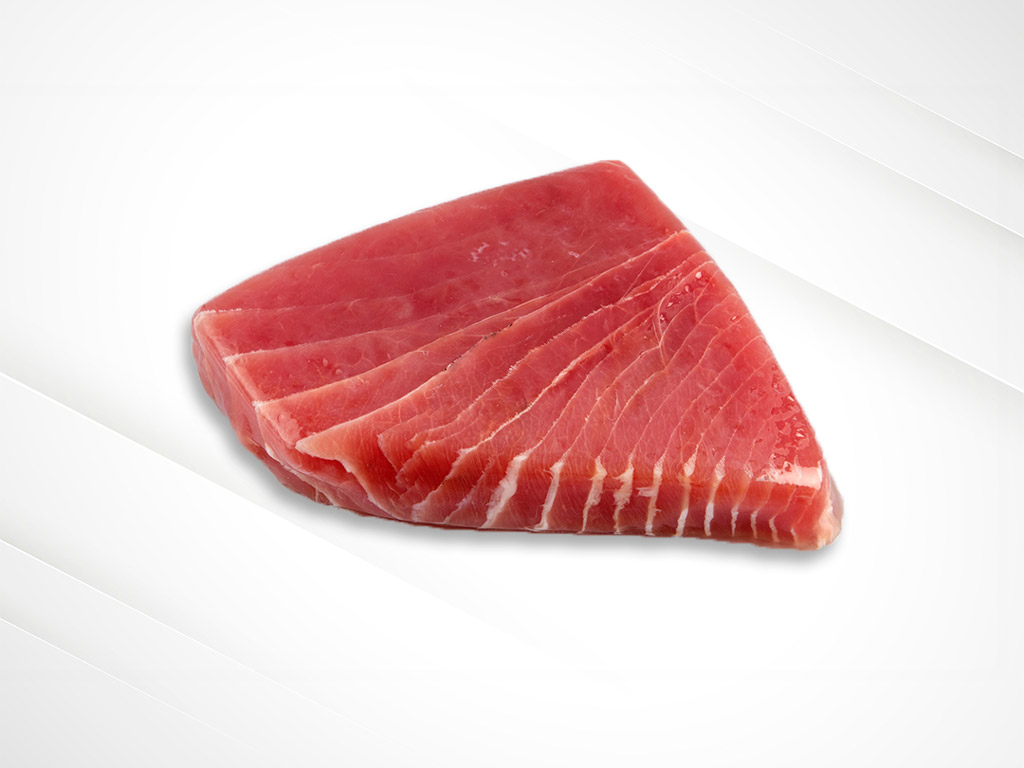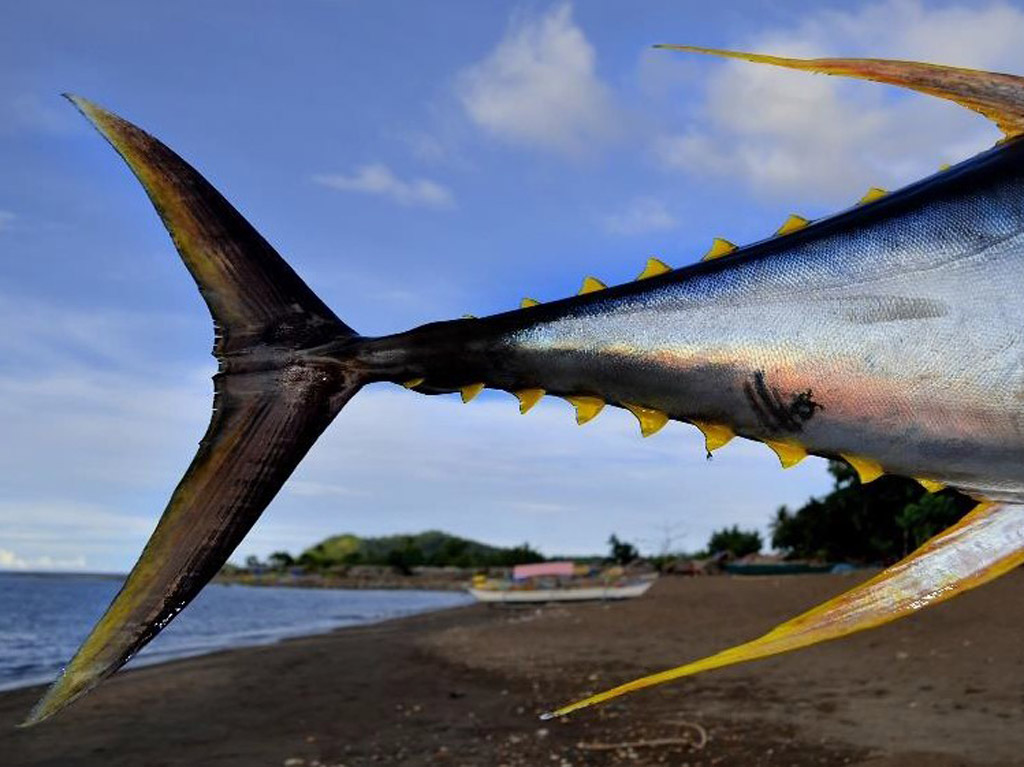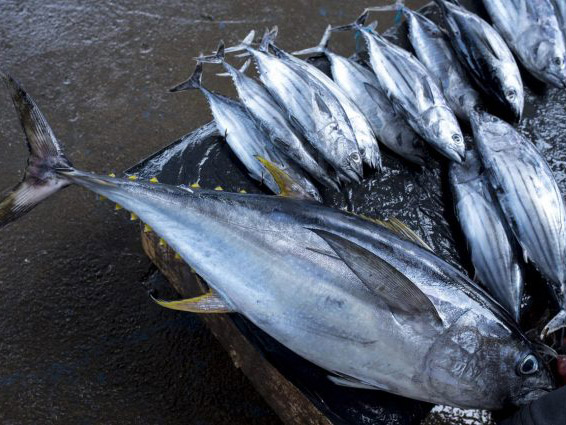
Yellowfin tuna
lat. Thunnus albacares
Yellowfin tuna
Tuna belongs to the tribe Thuninni, family Scombridae. This is the most famous big oily fish. In the last 20 years its tasty meat has ensured this fish the status of the most wanted and appreciated fish in the world. There are various types of tuna fish, but the most common ones are: bluefin tuna (that is considered the best), yellowfin tuna (preferred by the Japanese), skipjack or stripped tuna and albacore or longfin tuna that is also called white tuna due to its white meat.
Its body is muscular, strong, spindle shaped but at the same time curved in the middle. Dorsal fin and tail are dark purple, almost black in color. However, on the way to the belly and the head the color changes to metallic silver. Its meat is dark red and yet color becomes soft around the belly. Eventhough in smaller areas tuna is not too agile, it’s an extremely fast swimmer that can move at the speed of over 70 km/h. It can reach up to 4m in length and 600 kg in weight. The record for the caught yellowfin tuna was reported to have 458 cm and 684 kg. In the Adriatic, the average hunting weight of tuna doesn’t exceed 12 kg. It lives up to 15 years. However, it is believed it can achieve longer lifetime of approxiamately 30 years.
Tuna has formed habitats all over the Adriatic. Eventhought it is considered the fish of the big oceans, there is plenty of it in the Mediterrannean and Adriatic at all depths. During the spring and autumn season it enters all passages and bays, even the most remote ones such as Novigrad sea and Prokljan lake. It can’t be spotted so much in the waters of west Istria. The most famous fishing grounds are reported to be the ones in Rijeka bay, Crikvenica area, around Kvarnerić and islands of Kvarner and Zadar.
Energy and nutritional value
Energy value of 100 g fresh yellowfin tuna is 108kcal /452 kJ of what 4.9 % is fat, 23.3% are proteins and 0% are carbohydrates.
Minerals contained in fresh yellowfin tuna: potassium (444 mg) , phosphorus (191 mg), magnesium (50 mg), selenium (36.5 μg), calcium (16 mg), iron (0.7 mg), zinc (0.5 mg), cooper (0.06 mg) and manganese (0.02 mg).
Vitamins contained in fresh yellowfin tuna: B complex vitamins, thiamine (0.4 mg), riboflavin (0.05 mg), niacine (9.8 mg), panthotenic acid (0.75 mg), vitamin B6 (0.9 mg), choline (65 mg), vitamin B12 (0.5 μg), vitamin E (0.5 mg).
Tuna also contains omega 3 fatty acids. In 100 g of fresh tuna meat, there is 0.2 g DHA (Docosahexaenoic acid) and 0.04g EPA (Eicosapentaeoic acid).



